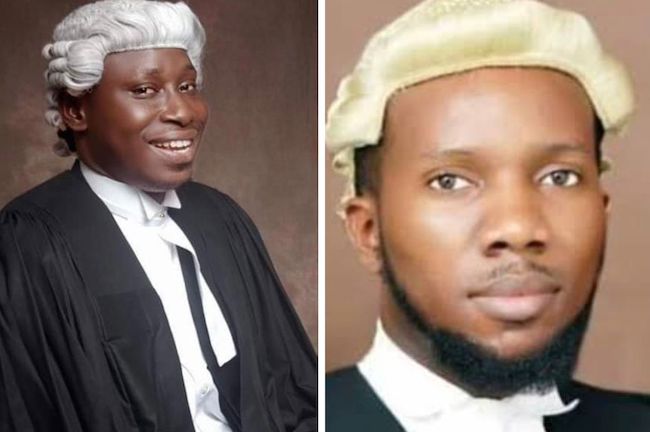
The PUNCH had earlier reported that the entourage were members of a Muslim group known as Majlisu Shabab-l-Ulamah Society.
The group noted that the Emir of Ilorin, Dr Ibrahim Sulu-Gambari, had sent them to convey a warning to the priestess to desist from holding an Egbe festival scheduled from July 22 to July 24, 2023, in Secondary School Road, Oke Andi in Ilorin.
Speaking with our correspondent in a telephone interview, a UK-based Rights lawyer, Morakinyo Olasupo, said the clerics have trampled upon the freedom of thought, conscience and religion of the traditional worshipper as entrenched in Chapter 4, Section 38 of the 1999 Constitution with their threat.
“Their action can lead to legal injunction, it is wrong to have threatened anyone from practising their religion. The Emir they claim to have gotten directives from is not identified by the constitution.
“They are not law enforcement agents and should not carry out such actions,” he added.
Speaking further, Olasupo said the right to religion is not absolute; it is only a qualified one, while citing Section 45 of the constitution, adding, “If the law will affect the public, the state government could come up with a law to challenge it with a counter-Act to avert chaos that will affect public safety.”
The UK-based law faulted the action of the clerics, saying that they should have consulted the state government to seek redress for the planned festival if they were not in agreement with it.
Unlike Olasupo, a senior lawyer who specialises in Human Rights and Public Interest, Inibehe Effiong, said no state or society can be attributed to a particular religion in Nigeria.
He stressed that whether the festival will affect other people’s peace should be a matter that the law enforcement agents should see to not the public judging that there may be.
He maintained that the domination of a religious sect in a region does not infer the illegality of other religions practised by others there, adding that “it is inconsequential”.
“The right to freedom of religion is not exclusive to Muslims or Christians. No religion was mentioned in the Constitution. It is not for adherents of other religions to determine which one is superior.
“Section 10 of the constitution makes it more clear that the government of the federation or state shall not recognise any religion as the state religion. So the section recognises two basic principles — a peculiarity of the Nigerian state and plurality of religion, so the priestess has the right to practise her religion, not leaving the fact that the African religion predates both Islam and Christianity.
“It is pure harassment to stop her; she should seek legal redress. The police should, given their threat, give them the security to manifest their faith,” Effiong noted.
Meanwhile, the Public Relations Officer of the Ilorin Emirate Development Union, Usman Jagunma, said that the intention of the clerics was not to stop her from practising her religion but to cease holding elaborate events that affect the doctrines of the Ilorin community.
He, however, added that the event could have been held in any part of Kwara State aside from the five core Ilorin local government areas identified as Ilorin Emirates, including Ilorin East, Ilorin West, Asa, Ilorin South and Moro.
“These Ilorin Emirate LGs are mostly dominated by 90 per cent Muslims and would not allow such religion to be practised in their vicinity except that there will be a public outcry that could lead to the breakdown of law and order.
“There are other places dominated by Christians too, especially some wards in Moro LG.
“The said woman has been there for years; she even bought land and built a house in the area and has not been stopped from practising her religion, but making it prominent to the extent of doing an elaborate event to celebrate her deities is looking to stir uproar in our community,” he stressed.
Jagunma affirmed the clerics being sent by the Emir because no one in the community would accept that while justifying their visitation to the priestess.
He further appealed to the state government to look into the matter to avoid a breakdown of law and order.





